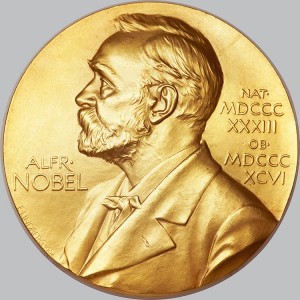Nobel Prize in Physiology or Medicine
October 3, 2017
Yesterday, October 2, the Nobel Assembly at the Karolinska Institute in Stockholm, Sweden, awarded the 2017 Nobel Prize in physiology or medicine to American chronobiologists Jeffrey C. Hall, Michael Rosbash, and Michael W. Young. The three scientists were awarded the prize for their discoveries on how circadian rhythms, also known as “biological clocks,” function in organisms, including humans. The science that deals with the study of biological clocks and rhythms is called chronobiology.
Biological clocks control the rhythms of functions and processes in organisms. They keep accurate time during each 24 hours and over days, weeks, months, and even years. Birds migrate, fish spawn, and flowers blossom on schedules that are set by their built-in clocks. In human beings, biological clocks regulate body activities and periods of sleep and wakefulness.
In their Nobel Prize-winning research, the scientists investigated the mechanisms that control the circadian rhythm in the common fruit fly (Drosophila melanogaster). The researchers isolated a particular gene responsible for producing a protein that builds up in the body at night and degrades at a set rate during the day, thus functioning as a biological clock. Hall, Robash, and Young discovered that this same mechanism functions in many other organisms, including people.
The scientists have also worked to raise awareness of the importance of proper sleep in maintaining good health. Their research suggests that a mismatch between the external environment and the internal biological clock may have a negative impact on human health. Such mismatches can occur when people travel across several time zones and experience “jet lag.”
Jeffery C. hall was born on May 3, 1945, in Brooklyn, a borough of New York City. He received his Ph.D. degree from the University of Washington in Seattle in 1971. He is a professor emeritus at Brandeis University in Waltham, Massachusetts, and also affiliated with the University of Maine. Michael Rosbash was born on Mar. 7, 1944, in Kansas City, Missouri. He earned a Ph.D. degree at the Massachusetts Institute of Technology in 1970. He is currently a professor at Brandeis University. Michael W. Young was born on March 28, 1949, in Miami, Florida. He earned a Ph.D. degree at the University of Texas in Austin in 1975. He is currently a professor at Rockefeller University in New York City.



